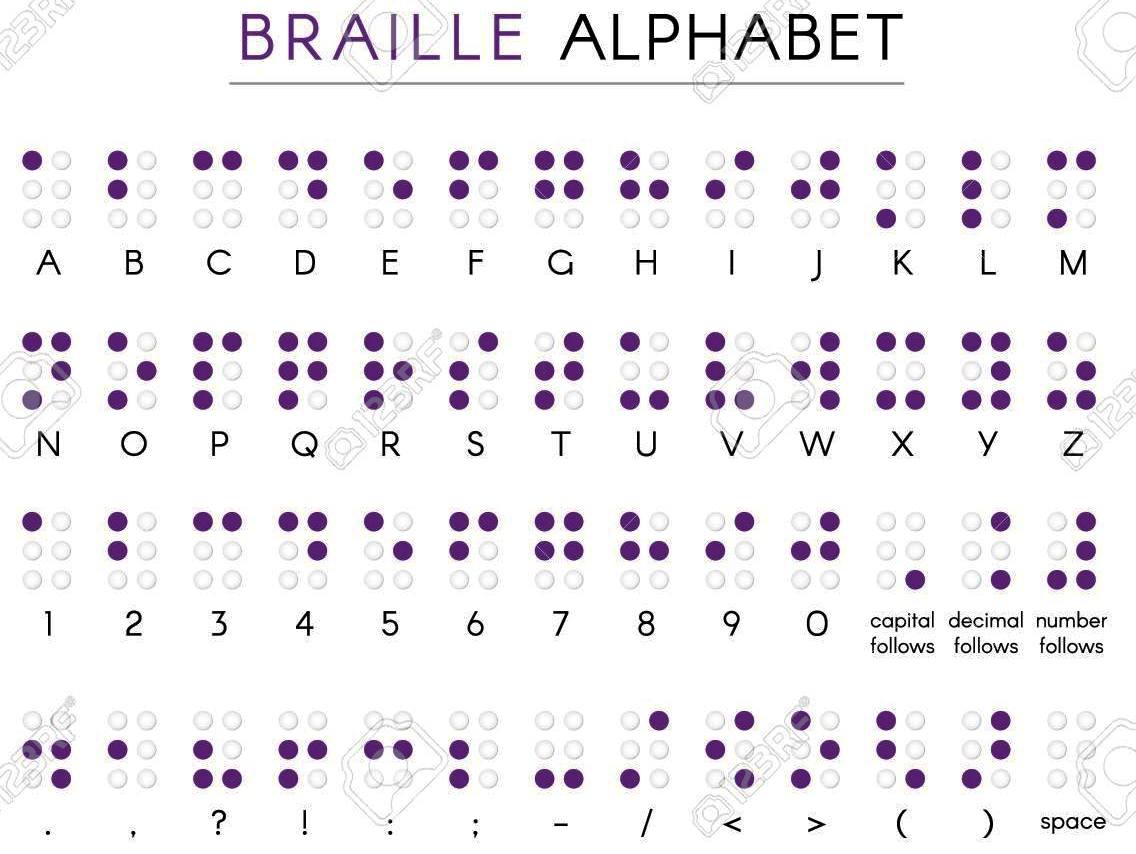by Aqib Rehman
While the current administration of Jammu and Kashmir deserves acknowledgement for inviting applications to recruit special educators, 69 posts fall significantly short of meeting the demand for teachers.
The Jammu and Kashmir administration deserves commendation for actively soliciting applications to hire special educators, a move that aligns with the spirit of inclusivity and empowerment championed by World Braille Day.
In 2019, the United Nations officially recognised January 4, the birthday of Louis Braille, as International Braille Day. This global celebration pays homage to the transformative contributions of the French educator to the lives of individuals with visual impairments.
Louis Braille, the son of a carpenter, lost his vision in a childhood accident while playing with his father’s tools. Despite this setback, Braille’s commitment to education remained unwavering, leading to the invention of the tactile writing system that bears his name.
Braille, developed in 1824 when Braille was just 15 years old, involves using a sturdy sheet of paper placed on a guided slate with a small square containing six dots. Each unique dot arrangement corresponds to a specific number or letter. A metallic pin with a wooden top is employed to puncture the paper, creating raised dots. When the paper is turned over, these dots can be sensed with the fingers, enabling individuals with visual impairments to read the written content.
Across the country, various governmental and non-governmental institutions play a pivotal role in imparting this crucial skill to individuals with visual disabilities. Noteworthy contributions come from non-governmental institutions in Delhi and the largest government institution in Dehradun.
Regrettably, Jammu and Kashmir has encountered substantial challenges due to past administrations’ lack of attention. Consequently, Jammu and Kashmir is yet to establish its inaugural government institution dedicated to providing Braille training, hindering the fostering of inclusivity for individuals with visual impairments. This underscores the pressing need for increased focus and resources to address this gap to ensure equal access to education and empowerment.
Genuine Inclusivity?
In India, the Constitution guarantees fundamental rights to every individual, encompassing the right to education, freedom of expression, and equal opportunities as articulated in Articles 15 and 16. The Rights of Persons with Disabilities (RPWD) Act of 2016 further solidifies these rights for individuals with disabilities. However, the prevailing societal attitude in Kashmir towards those with vision disabilities remains largely unaltered, despite the existence of constitutional and legal safeguards.
Inclusivity extends beyond mere rhetoric; it demands genuine recognition and commitment. Persons with disabilities continue to face exclusion from various aspects of society, with discrimination deeply embedded not only in behaviour but also in the colloquial language of the Kashmiri people. Expressions used casually, such as Aenn dand (blind bull), anis chu raat doh hivui (day and night are similar to blind), and onn kyaaki zani zag teprun (a blind cannot differentiate between red rice and white rice), perpetuate discrimination against individuals with vision disabilities, highlighting a need for heightened awareness.

Empowering persons with disabilities involves ensuring equal opportunities in education and employment. However, a historical lack of awareness has led to the denial of these individuals’ admissions to government and private schools. While the current administration of Jammu and Kashmir deserves acknowledgement for inviting applications to recruit special educators, 69 posts fall significantly short of meeting the demand for teachers.
Quoting Helen Keller, who emphasised that “education is the key to unlocking the golden door of freedom,” it becomes imperative for both the government and civil society to invest in the education of persons with disabilities.
On the employment front, the Jammu and Kashmir administration falls short of complying with the requirements of reserving four per cent of jobs under the RPWD Act of 2016. The provision of writers during examinations, particularly within the Jammu and Kashmir Public Service Commission (JKPSC), remains problematic for persons with vision disabilities due to inconsistent guidelines and indifferent attitudes of examination centre supervisors, hindering their capabilities. Addressing these issues requires a concerted effort from all stakeholders to truly realise the promise of inclusivity and empowerment for persons with disabilities in Kashmir.
Gaps in Disability Rights
Significant strides have been made since the enactment of the Rights of Persons with Disabilities (RPWD) Act in 2016, yet substantial gaps persist that require attention.
Firstly, there is a notable lack of uniformity in examination guidelines across conducting bodies. The Jammu and Kashmir administration should proactively encourage exam-conducting agencies, including the JKPCS and JKSSB, to establish standardised guidelines for examinations involving persons with vision disabilities. This encompasses considerations such as extra time allocation, provision of writer facilities, and protocols for candidates bringing their writers.
Secondly, the Jammu and Kashmir administration should undertake an accessibility audit for all schools and colleges within the erstwhile state. The absence of essential facilities, such as ramps for wheelchair users and tactile accommodations for students with vision disabilities, coupled with classes located in multiple inaccessible buildings, poses significant barriers to attending regular lectures.

The issue of disability allowance also warrants attention. The current monthly stipend of Rs 1000 is deemed insufficient for the empowerment of persons with disabilities. It is proposed that the government should take on the responsibility of covering educational and health expenses for individuals with disabilities until the age of 21. Furthermore, employment opportunities should be facilitated upon the completion of their bachelor’s degree.
In addressing these concerns, it is crucial to adopt a proactive approach that emphasises empowering individuals rather than merely providing for them. As the saying goes, “It is always better to teach a person how to make bread than serving one.” This shift towards proactive empowerment measures aligns with the broader goal of fostering independence and self-sufficiency among persons with disabilities, ensuring their meaningful inclusion and participation in society.
(The author, visually impaired by birth, is a PhD scholar of Chinese Studies at Jawaharlal Nehru University New Delhi and a Diplomacy student at the University of Stirling UK. He would like to receive feedback at aqib4302@gmail.com. Ideas are personal.)
The post Can Jammu and Kashmir Bridge Gaps in Empowering The Specially-Abled? appeared first on Kashmir Life.
from Kashmir Life https://ift.tt/7EBiydc
via IFTTThttps://ift.tt/3rPUxaS
No comments:
Post a Comment